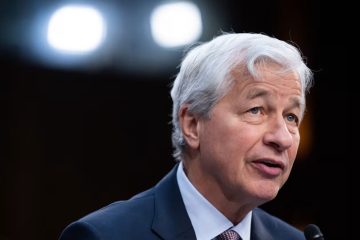Todays Headlines – 01 June 2023

- U.S. stocks close mixed as Nvidia’s 3% rise offsets debt ceiling jitters. The Dow Jones Industrial Average fell 0.41%, the S&P 500 dropped 0.61%, while the Nasdaq Composite edged up 0.01%. Investors weighed the impact of a debt ceiling deal, weak labor data, record trade deficit, high inflation, and trade talks with China. Nvidia was a bright spot, while Capri Holdings and Etsy disappointed.
- Congress passes bill to suspend debt ceiling until December 2023, averting a potential default and easing market fears. The bill now heads to President Joe Biden’s desk for his signature. The debt ceiling is the legal limit on how much the federal government can borrow to fund its operations and obligations. The bill also provides $28.6 billion in disaster relief and $6.3 billion for Afghan refugees.
- U.S. labor market shows signs of cooling as private payrolls increase by 330,000 in July, well below expectations of 653,000. The data suggests that the Delta variant of COVID-19 may be weighing on hiring and economic activity. The private sector added jobs in leisure and hospitality, education and health services, and professional and business services, but lost jobs in retail trade and construction.
- U.S. trade deficit widens to record high of $75.7 billion in June, as imports surge and exports decline. The gap reflects strong domestic demand for foreign goods and services, as well as supply chain disruptions and higher commodity prices. Imports rose 2.1% to $283.4 billion, while exports fell 1% to $207.7 billion. The trade deficit with China increased 5.8% to $27.8 billion.
- U.S. service sector activity slows in July but remains near record high, according to the ISM non-manufacturing index. The index fell to 64.1 from 60.1 in June, indicating a moderation in the pace of expansion amid labor and material shortages. The index still shows strong growth in the service sector, which accounts for about two-thirds of the U.S. economy.
- U.S. factory orders rise for second straight month in June, increasing by 1.5% and beating expectations of 1%. The data suggests that manufacturing remains resilient despite supply chain challenges and rising input costs. Factory orders rose across most categories, including machinery, computers and electronics, electrical equipment, and transportation equipment.
- U.S. inflation rises 0.4% in April and 4.7% from a year ago, according to a key gauge for the Fed. The core PCE price index, which excludes food and energy, exceeds the Fed’s 2% target and raises concerns about overheating. The index was driven by higher prices for personal consumption expenditures, especially for services such as health care, recreation, and transportation.
- U.S., China’s top commerce officials meet to discuss trade concerns, in their first conversation since President Joe Biden took office. The two sides agree to promote healthy trade and cooperate on issues such as climate change and pandemic response. They also acknowledge the importance of resolving outstanding issues through dialogue and consultation.
- A U.S. recession would be ‘good news’ for markets, according to a strategist who argues that a downturn would force the Fed to ease monetary policy further and boost asset prices. He expects a recession to occur by mid-2023, as the fiscal stimulus fades and inflation pressures mount. He advises investors to buy U.S. stocks, bonds, gold, and cryptocurrencies ahead of the recession.
- House Democrats reintroduce bill targeting stock buybacks, which would require companies to pay workers at least $15 an hour and offer health benefits before repurchasing their own shares. The bill aims to curb excessive corporate payouts and address income inequality. The bill also proposes a tax on stock buybacks and a ban on executives selling shares within six months of a buyback announcement.










